#blue maria
Text

—Maria Michela Sassi, "Can we hope to understand how the Greeks saw their world?" (pub. Aeon) [ID in ALT]
#love u for this anon ty#q#lit#quotes#essays#maria michela sassi#aeon#how the greeks saw colour#links#i dream in blue#m#x
3K notes
·
View notes
Text
I'm dying cuz im so surprised...



#sonadow#shadow the hedgehog#sonic the hedgehog#tails the fox#Maria aint dead she just went offline bros#Sonic: man to be coddled by shadow#shadow: stfu blue bitch#still idk how to draw them furry guys consistently
5K notes
·
View notes
Text




MARIA ALEKSEEVA Dress
if you want to support this blog consider donating to:ko-fi.com/fashionrunways
400 notes
·
View notes
Text

(lists) for three
#its silly actually#im taking things literally#absolutely adore the fact that all the mistresses have blue eyes. sinister.#pathologic#pathologic fest#maria kaina#daniil dankovsky#katerina saburova#clara saburova#artemy burakh#victoria olgimskaya jr#мор утопия#art#my art
678 notes
·
View notes
Text

same soul...
#my art#shadow the hedgehog#maria robotnik#thinking abt that sonic battle lore abt gerald giving shadow the same soul as maria.....#blue eyed shadow.... mcfreaks it
2K notes
·
View notes
Text
The true post-cyberpunk hero is a noir forensic accountant

I'm touring my new, nationally bestselling novel The Bezzle! Catch me in TOMORROW (Apr 17) in CHICAGO, then Torino (Apr 21) Marin County (Apr 27), Winnipeg (May 2), Calgary (May 3), Vancouver (May 4), and beyond!

I was reared on cyberpunk fiction, I ended up spending 25 years at my EFF day-job working at the weird edge of tech and human rights, even as I wrote sf that tried to fuse my love of cyberpunk with my urgent, lifelong struggle over who computers do things for and who they do them to.
That makes me an official "post-cyberpunk" writer (TM). Don't take my word for it: I'm in the canon:
https://tachyonpublications.com/product/rewired-the-post-cyberpunk-anthology-2/
One of the editors of that "post-cyberpunk" anthology was John Kessel, who is, not coincidentally, the first writer to expose me to the power of literary criticism to change the way I felt about a novel, both as a writer and a reader:
https://locusmag.com/2012/05/cory-doctorow-a-prose-by-any-other-name/
It was Kessel's 2004 Foundation essay, "Creating the Innocent Killer: Ender's Game, Intention, and Morality," that helped me understand litcrit. Kessel expertly surfaces the subtext of Card's Ender's Game and connects it to Card's politics. In so doing, he completely reframed how I felt about a book I'd read several times and had considered a favorite:
https://johnjosephkessel.wixsite.com/kessel-website/creating-the-innocent-killer
This is a head-spinning experience for a reader, but it's even wilder to experience it as a writer. Thankfully, the majority of literary criticism about my work has been positive, but even then, discovering something that's clearly present in one of my novels, but which I didn't consciously include, is a (very pleasant!) mind-fuck.
A recent example: Blair Fix's review of my 2023 novel Red Team Blues which he calls "an anti-finance finance thriller":
https://economicsfromthetopdown.com/2023/05/13/red-team-blues-cory-doctorows-anti-finance-thriller/
Fix – a radical economist – perfectly captures the correspondence between my hero, the forensic accountant Martin Hench, and the heroes of noir detective novels. Namely, that a noir detective is a kind of unlicensed policeman, going to the places the cops can't go, asking the questions the cops can't ask, and thus solving the crimes the cops can't solve. What makes this noir is what happens next: the private dick realizes that these were places the cops didn't want to go, questions the cops didn't want to ask and crimes the cops didn't want to solve ("It's Chinatown, Jake").
Marty Hench – a forensic accountant who finds the money that has been disappeared through the cells in cleverly constructed spreadsheets – is an unlicensed tax inspector. He's finding the money the IRS can't find – only to be reminded, time and again, that this is money the IRS chooses not to find.
This is how the tax authorities work, after all. Anyone who followed the coverage of the big finance leaks knows that the most shocking revelation they contain is how stupid the ruses of the ultra-wealthy are. The IRS could prevent that tax-fraud, they just choose not to. Not for nothing, I call the Martin Hench books "Panama Papers fanfic."
I've read plenty of noir fiction and I'm a long-term finance-leaks obsessive, but until I read Fix's article, it never occurred to me that a forensic accountant was actually squarely within the noir tradition. Hench's perfect noir fit is either a happy accident or the result of a subconscious intuition that I didn't know I had until Fix put his finger on it.
The second Hench novel is The Bezzle. It's been out since February, and I'm still touring with it (Chicago tonight! Then Turin, Marin County, Winnipeg, Calgary, Vancouver, etc). It's paying off – the book's a national bestseller.
Writing in his newsletter, Henry Farrell connects Fix's observation to one of his own, about the nature of "hackers" and their role in cyberpunk (and post-cyberpunk) fiction:
https://www.programmablemutter.com/p/the-accountant-as-cyberpunk-hero
Farrell cites Bruce Schneier's 2023 book, A Hacker’s Mind: How the Powerful Bend Society’s Rules and How to Bend Them Back:
https://pluralistic.net/2023/02/06/trickster-makes-the-world/
Schneier, a security expert, broadens the category of "hacker" to include anyone who studies systems with an eye to finding and exploiting their defects. Under this definition, the more fearsome hackers are "working for a hedge fund, finding a loophole in financial regulations that lets her siphon extra profits out of the system." Hackers work in corporate offices, or as government lobbyists.
As Henry says, hacking isn't intrinsically countercultural ("Most of the hacking you might care about is done by boring seeming people in boring seeming clothes"). Hacking reinforces – rather than undermining power asymmetries ("The rich have far more resources to figure out how to gimmick the rules"). We are mostly not the hackers – we are the hacked.
For Henry, Marty Hench is a hacker (the rare hacker that works for the good guys), even though "he doesn’t wear mirrorshades or get wasted chatting to bartenders with Soviet military-surplus mechanical arms." He's a gun for hire, that most traditional of cyberpunk heroes, and while he doesn't stand against the system, he's not for it, either.
Henry's pinning down something I've been circling around for nearly 30 years: the idea that though "the street finds its own use for things," Wall Street and Madison Avenue are among the streets that might find those uses:
https://craphound.com/nonfic/street.html
Henry also connects Martin Hench to Marcus Yallow, the hero of my YA Little Brother series. I have tried to make this connection myself, opining that while Marcus is a character who is fighting to save an internet that he loves, Marty is living in the ashes of the internet he lost:
https://pluralistic.net/2023/05/07/dont-curb-your-enthusiasm/
But Henry's Marty-as-hacker notion surfaces a far more interesting connection between the two characters. Marcus is a vehicle for conveying the excitement and power of hacking to young readers, while Marty is a vessel for older readers who know the stark terror of being hacked, by the sadistic wolves who're coming for all of us:
https://www.youtube.com/watch?v=I44L1pzi4gk
Both Marcus and Marty are explainers, as am I. Some people say that exposition makes for bad narrative. Those people are wrong:
https://maryrobinettekowal.com/journal/my-favorite-bit/my-favorite-bit-cory-doctorow-talks-about-the-bezzle/
"Explaining" makes for great fiction. As Maria Farrell writes in her Crooked Timber review of The Bezzle, the secret sauce of some of the best novels is "information about how things work. Things like locks, rifles, security systems":
https://crookedtimber.org/2024/03/06/the-bezzle/
Where these things are integrated into the story's "reason and urgency," they become "specialist knowledge [that] cuts new paths to move through the world." Hacking, in other words.
This is a theme Paul Di Filippo picked up on in his review of The Bezzle for Locus:
https://locusmag.com/2024/04/paul-di-filippo-reviews-the-bezzle-by-cory-doctorow/
Heinlein was always known—and always came across in his writings—as The Man Who Knew How the World Worked. Doctorow delivers the same sense of putting yourself in the hands of a fellow who has peered behind Oz’s curtain. When he fills you in lucidly about some arcane bit of economics or computer tech or social media scam, you feel, first, that you understand it completely and, second, that you can trust Doctorow’s analysis and insights.
Knowledge is power, and so expository fiction that delivers news you can use is novel that makes you more powerful – powerful enough to resist the hackers who want to hack you.
Henry and I were both friends of Aaron Swartz, and the Little Brother books are closely connected to Aaron, who helped me with Homeland, the second volume, and wrote a great afterword for it (Schneier wrote an afterword for the first book). That book – and Aaron's afterword – has radicalized a gratifying number of principled technologists. I know, because I meet them when I tour, and because they send me emails. I like to think that these hackers are part of Aaron's legacy.
Henry argues that the Hench books are "purpose-designed to inspire a thousand Max Schrems – people who are probably past their teenage years, have some grounding in the relevant professions, and really want to see things change."
(Schrems is the Austrian privacy activist who, as a law student, set in motion the events that led to the passage of the EU's General Data Privacy Regulation:)
https://pluralistic.net/2020/05/15/out-here-everything-hurts/#noyb
Henry points out that William Gibson's Neuromancer doesn't mention the word "internet" – rather, Gibson coined the term cyberspace, which, as Henry says, is "more ‘capitalism’ than ‘computerized information'… If you really want to penetrate the system, you need to really grasp what money is and what it does."
Maria also wrote one of my all-time favorite reviews of Red Team Blues, also for Crooked Timber:
https://crookedtimber.org/2023/05/11/when-crypto-meant-cryptography/
In it, she compares Hench to Dickens' Bleak House, but for the modern tech world:
You put the book down feeling it’s not just a fascinating, enjoyable novel, but a document of how Silicon Valley’s very own 1% live and a teeming, energy-emitting snapshot of a critical moment on Earth.
All my life, I've written to find out what's going on in my own head. It's a remarkably effective technique. But it's only recently that I've come to appreciate that reading what other people write about my writing can reveal things that I can't see.

If you'd like an essay-formatted version of this post to read or share, here's a link to it on pluralistic.net, my surveillance-free, ad-free, tracker-free blog:
https://pluralistic.net/2024/04/17/panama-papers-fanfic/#the-1337est-h4x0rs

Image:
Frédéric Poirot (modified)
https://www.flickr.com/photos/fredarmitage/1057613629 CC BY-SA 2.0
https://creativecommons.org/licenses/by-sa/2.0/
#pluralistic#science fiction#cyberpunk#literary criticism#maria farrell#henry farrell#noir#martin hench#marty hench#red team blues#the bezzle#forensic accountants#hackers#bruce schneier#post-cyberpunk#blair fix
186 notes
·
View notes
Text
|| 🍍• If Sonic 3 coming out later this year does embrace a Sonic Adventure 2/Sonic X take on Shadow’s Arc…
…I think he’ll be the one to try and get through to Shadow:

Why?
Because of: Longclaw

The one being who scarified themselves to ensure the other could survive and/or fulfill their future purpose.


The one being who scarified themselves to ensure the other could survive and/or fulfill their future purpose.
The similarities are uncanny, and - as much as I feel exploring the comparability between this all would be amazing - I’m hesitant to suggest that this was always the plan to complete a trilogy. It might not be. But I’m sus.
In this universe, we’re presented with a Sonic character who can - to some degree - directly relate to being ripped away from that one person in his life who was all he’d ever supposedly known, trusted, and cared for. If Movieverse Shadow follows close to other iterations and arcs of the character, the same trauma can naturally be said for him. And I feel that would lead to a very interesting set-up if done right. And Shadow isn’t made into some prick edgelord
Cue the: “How could you possibly know what loss feels like?” spiel mid-scuffle and Sonic snaps.
“Because I lost everything, too. I made a mistake, and…everything went wrong because of me…”
“Her name was Longclaw, and she protected me so I could get here. To safety. I put people in danger. I put her in danger because I wasn’t responsible. And now she’s gone.”
“I miss her everyday. Sometimes I wonder if things had been different…if I…”
“Look, I can be angry and upset about what I did; what happened, I still kinda’ am, but revenge isn’t going to bring Longclaw back.”
Sonic lost a great deal when he left Longclaw behind; his carer, his home, his everything. But throughout the Movieverse, he’s come to gain something just as beautiful - a caring family and amazing friends.
We also begin to journey alongside Sonic as he starts to get used to the idea of being responsible in Sonic 2 and concluding he still wanted to ‘be a kid’. And what could be more of a perfect act of responsibility and ‘growing up’ than directly showing another the power of being a just hero and supporting someone who’s pain he can understand.
Idek…just a few wee thoughts… :)
#ℰ𝒹𝒾𝓉𝒾ℴ𝓃: 𝒢ℴ𝓉𝓉𝒶 𝑔ℴ 𝒻𝒶𝓈𝓉~! 🦔💙#|| jess speaks •#|| headcanons •#there ain’t no way they give the blue bastard that much of a backstory for Longclaw to just disappear as a character in the background#sonic the hedgehog#sonic the hedgehog headcanons#sonic the hedgehog movie#sonic the hedghog fandom#sth#sth headcanons#sth fandom#sonic movie#sonic 3#sonic wachowski#shadow the hedgehog#longclaw#maria robotnik#sonadow#@iwozlegit
164 notes
·
View notes
Photo
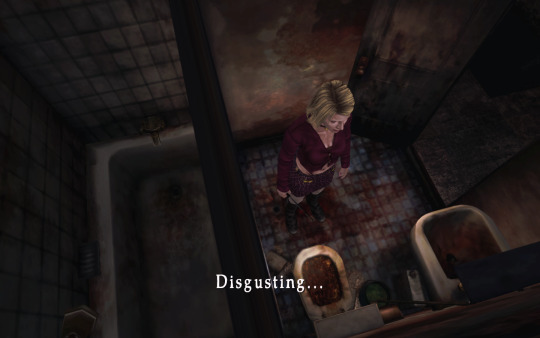
#silent hill 2#born from a wish#maria silent hill#blue creek apartments#horror game#game screenshots
688 notes
·
View notes
Text
hey



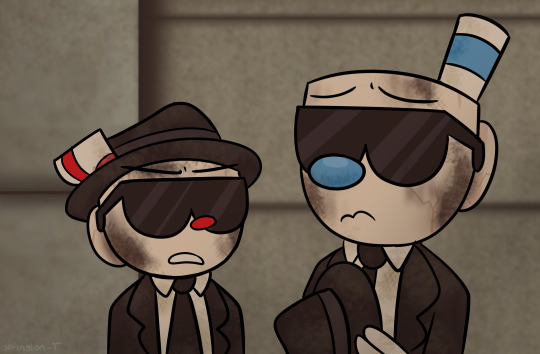
At this point i´ll just make the full movie with them HAHAHAHA
The blues Brothers + Cuphead pt4
hope you´ll like them!
PLEASE DO NOT REPOST
References i used:
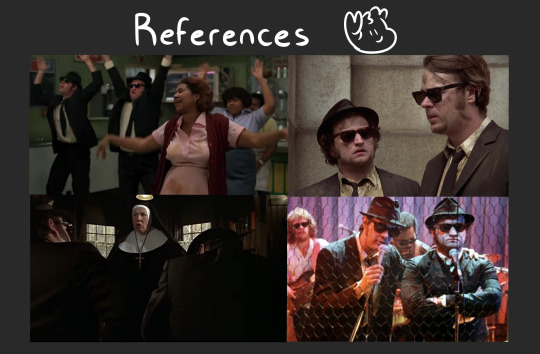
#RIP Bluesmobile#:(#cuphead dont deal with the devil#the blues brothers#batim#cuphead#mugman#ms chalice#cala maria#alice angel#jake blues#elwood blues#aretha franklin#the penguin#ngl that was my favorite part of the movie XDDD#my artwork#sorry i can´t draw backgrounds
2K notes
·
View notes
Text
Fastest Growing Fandoms on AO3 This Week (02/13/2023)
Every week I pull data on how many fics are in each fandom and compare to the previous week, then calculate the percentage increase to determine fastest growing fandoms. Since this naturally skews towards smaller fandoms, I have included the same data filtered to Over 1k, 5k, & 10k fics.
Overall:

Over 1,000 Fics:
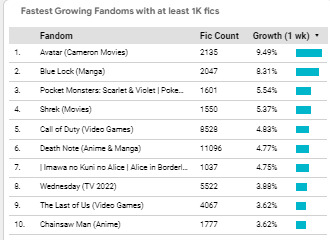
Over 5,000 Fics:
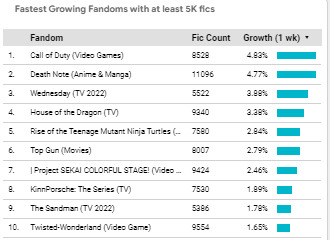
Over 10,000 Fics:
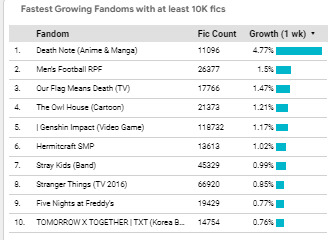
Source: AO3 Fandom Dashboard
#ao3#ao3 stats#Punch Out#Fire Emblem Engage#The Last of Us#Gran Hermano#Maria Clara at Ibarra#Puss in Boots#Buddy Daddies#HiGH&LOW: THE WORST#Rain World#Willow#Avatar#Blue Lock#Pocket Monsters: Scarlet & Violet Pokemon Scarlet & Violet Versions#Shrek#Call of Duty#Death Note#Imawa no Kuni no Alice Alice in Borderland#Wednesday
534 notes
·
View notes
Text
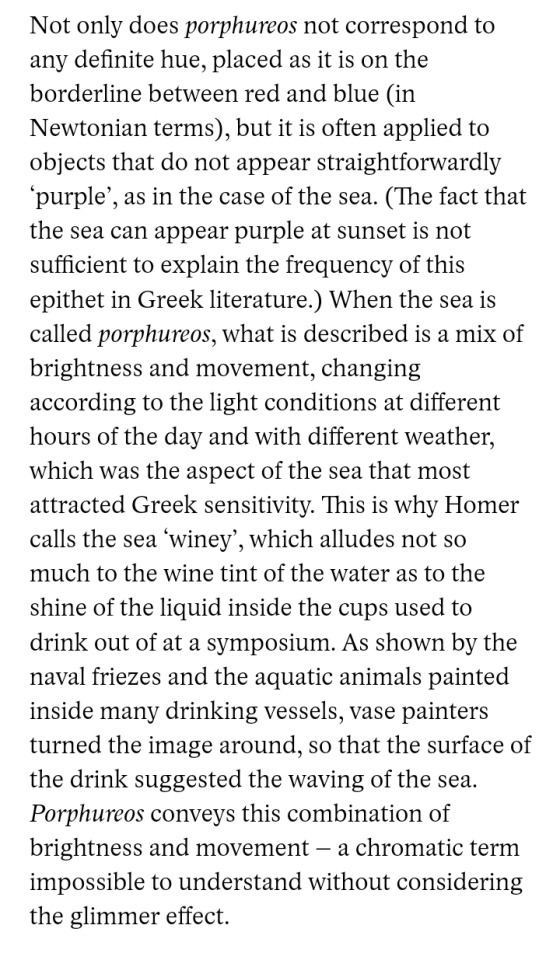
—Maria Michela Sassi, "Can we hope to understand how the Greeks saw their world?" (pub. Aeon) [ID in ALT]
#q#lit#quotes#articles#maria michela sassi#aeon#how the greeks saw colour#i dream in blue#oh shiny archive#m#x
499 notes
·
View notes
Photo
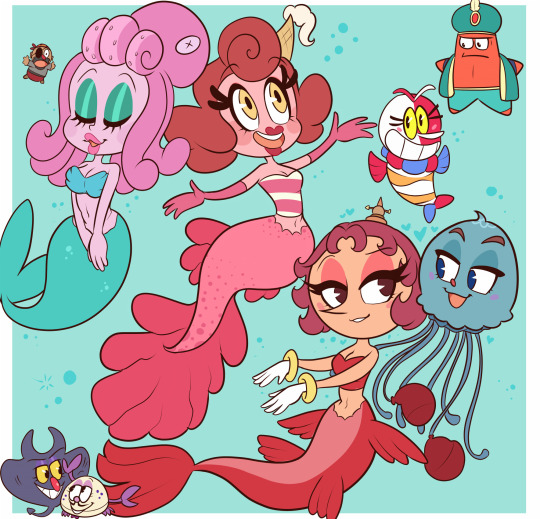
Some silliness I did for Mermay
#Cuphead#Cala Maria#Baroness Von Bon Bon#Hilda Berg#Goopy Le Grande#Hilda x Goopy#Hilda Berg x Goopy Le Grande#Blue Moon#Beppi the Clown#Djimmi the Great#Devildice#The Devil#King Dice#Captain Brineybeard#Mermay#cuphead ships
330 notes
·
View notes
Text

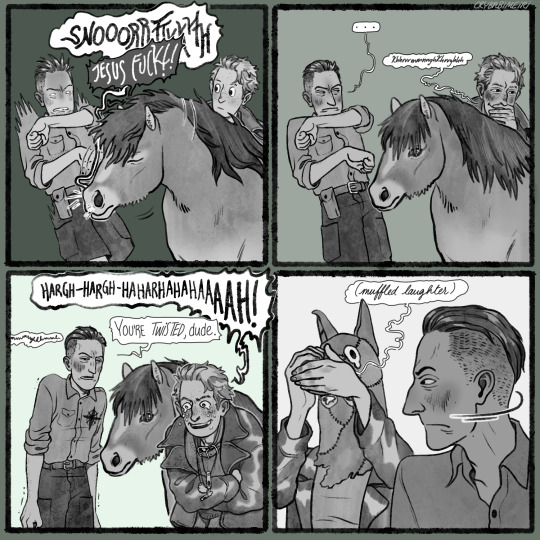
the kain boy fears the swagger of a rotund pony

#pathologic 2#pathologic#khan kain#notkin#dogheads#dogheads pathologic#soul-and-a-halves#my art#my firm belief the khan boy and men are sooo scared#of horses. mostly khan and victor tho.#maria and nina could tame 75 wild horses in a blink tho#notkin when that dude who wanna play tough gets#scared by animal behavior: 😂😂😂😂#i lahv drawing the kids i get to push the expressions#into silly territories. i know at 15#everything is SO serious. i know. however. get sillied#also NOT MURKY last pic. just one of the NPC townsfolk girl.#i would never draw murky without her blue shawl i won't do that to her
544 notes
·
View notes
Text

one, two (#e) by maria schumacher, 2022, lino ink on paper (braided), 59 × 42 centimeters
133 notes
·
View notes
Text


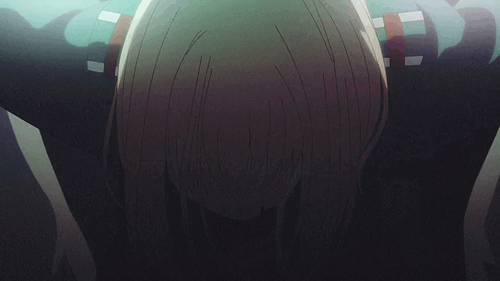

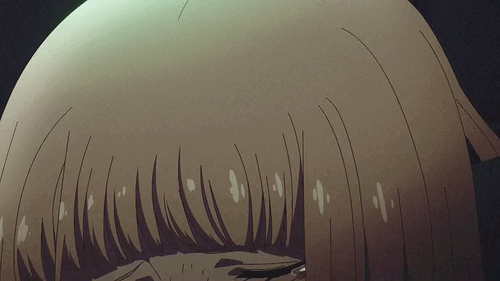
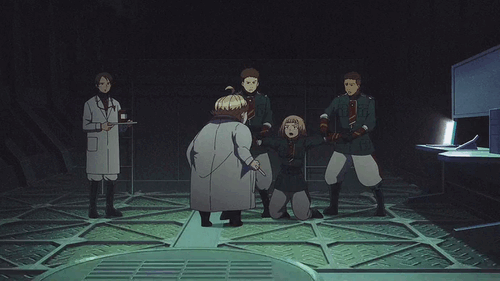

𝘐'𝘮 𝘨𝘰𝘪𝘯𝘨 𝘵𝘰 𝘬𝘪𝘭𝘭 𝘺𝘰𝘶 𝘪𝘯 𝘺𝘰𝘶𝘳 𝘴𝘭𝘦𝘦𝘱!
#ao no exorcist#blue exorcist#izumo kamiki#maria yoshida#michael gedoin#tamamo kamiki#tsukumo kamiki#illuminati
81 notes
·
View notes
Text

María Demina by Vladimir Nikolaev
part 3 / 8 (part 1 , part 2 , part 4 , part 5 , part 6 , part 7 , part 8)
81 notes
·
View notes